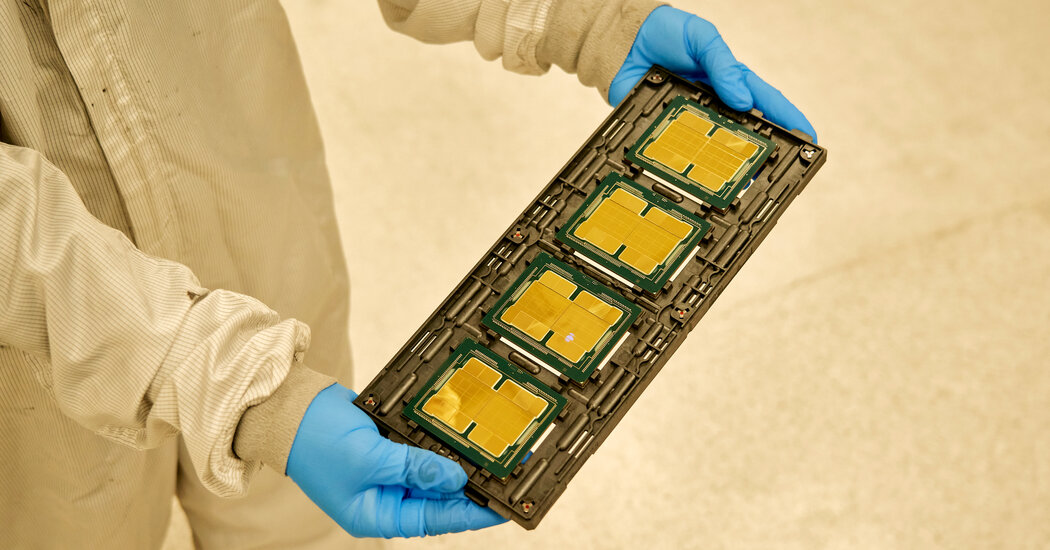A broad bipartisan bill to bolster US competitiveness with China gained traction in the Senate on Wednesday after the top Democrat proceeded to reinstate critical investments in manufacturing and technology that were in danger of being scrapped after months of negotiations.
In a test vote on Tuesday night, the Senate voted to move forward with the most politically powerful and commercially urgent part of the measure: legislation that would give more than $52 billion in subsidies and tax credits to semiconductor companies in the United States.
The 64-34 votes showed broad support for a years-long effort to enact comprehensive industrial policy legislation to counter China’s technological and manufacturing dominance. The venture appeared to be sputtering in recent weeks as lawmakers scrambled to agree on the sprawling bill.
After 16 Republican senators voted in favor of the measure, New York Democrat and Majority Leader Senator Chuck Schumer reinstated many critical research and development measures previously sidelined into legislation. In an unusual exercise, Mr. Schumer had said he would only add the provisions if the bill gets 60 votes, indicating it could survive a filibuster and go to the Senate.
Now the Senate will propose a broader package that would allow about $250 billion for research and development of critical technologies. Written by a Midwesterner and New Yorker—Mr. Schumer and Indiana Republican Senator Todd Young—it seeks to concentrate that investment in once thriving industrial hubs to revive communities eroded by corporate offshoring.
“All of this will help America lead the way in developing tomorrow’s technologies,” said Mr. Schumer. “If we invest in science here, we will create millions of new high-paying jobs and ensure that America will be the leader in these advanced problems that will dominate the economy of the 21st century.”
The Senate could pass the legislation as early as this week, and Speaker Nancy Pelosi said on Wednesday the House could pass the bill as early as next week, praising it as “a major victory for American families.”
Hundreds of measures included in the original bill, including a provision that would give the government oversight of US companies looking to invest in overseas countries, were scrapped from the legislation.
In addition to investments in the National Science Foundation and federal research and development, senators also included language that would prohibit chip companies receiving federal funding from expanding or building a new advanced semiconductor manufacturing site in “specific countries that pose a threat to the national security of the United States.”
Senators also added language that banned federal research agency staff from participating in foreign talent recruiting programs.

